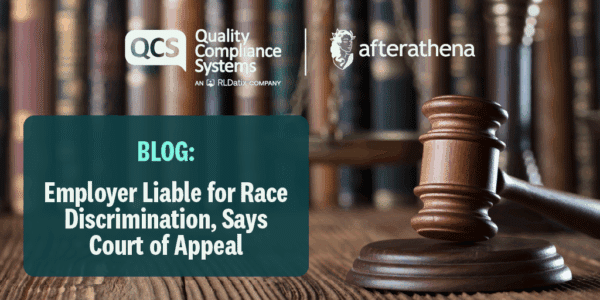Mrs Parmar, a British national of Indian origin, has recently been successful in her claim against her employer following a Court of Appeal (COA) ruling, which confirmed that she had been subject to race discrimination.
Background
Mrs Parmar was employed by Leicester City Council as a Head of Service. Following internal disputes, she was temporarily transferred from her role and placed under disciplinary investigation by Ms Lake (Director of Adult Social Care and Safeguarding). The allegations against her were vague (no dates or details regarding alleged conduct breaches) and she took a period of stress-related sick leave, following an initial investigation meeting with Ms Lake.
Subsequently, Ms Tote took over the investigation and reviewed recordings of interviews conducted by Ms Lake.
Ms Tote held a re-arranged investigation meeting, during which Mrs Parmar expressed confusion about the allegations. A second meeting was held two weeks later, where Ms Lake concluded that there was no case to answer and the disciplinary process ended.
Subsequently, Mrs Parmar initiated tribunal proceedings.
Mrs Parmar brought a claim for direct race discrimination, complaining that:
- False allegations had been made against her
- She had been transferred from her role as head of service
- A disciplinary investigation was initiated, she had been required to attend several meetings, which resulted in no case to answer
- The employer had failed to consider more proportionate ways of dealing with the allegations
As comparators, she identified two white Heads of Service, asserting they would not have been treated the same way. She also highlighted that two BAME senior managers had faced disciplinary action, whereas no white senior manager had been similarly disciplined.
Tribunal findings
The Tribunal agreed that Mrs Parmar had been treated less favourably by reason of her race. In similar situations, Ms Lake had offered mediation or addressed matters informally, however had opted to take formal action here, despite there being nothing of substance to start a disciplinary investigation.
The tribunal concluded that race influenced Ms Lake’s decisions, as there was no other credible explanation for the differential treatment. The tribunal also drew inferences from the Council’s failure to disclose highly relevant information, namely the evidence which led Ms Tote to decide that Mrs Parmar had no case to answer. The Council were unable to establish on the balance of probabilities a non-discriminatory explanation for her treatment.
Appeal decision
The Council appealed; however this was dismissed by the EAT. The Council therefore appealed to the COA, arguing that the tribunal had erred in its treatment of comparators, the drawing of adverse inferences from the Council’s failure to disclose relevant documents and by failing to accept the Council’s non-discriminatory explanation for its treatment of Mrs Parmar.
The COA confirmed the tribunal did not err in its approach, and had been entitled to decide that the circumstances of the comparators were sufficiently similar to those of Mrs Parmar.
It was clarified that whilst the tribunal had drawn adverse inferences from the failure to disclose relevant evidence, this in itself had not shifted the burden of proof to the employer to provide an explanation for its conduct. Finally, the Tribunal had not been persuaded that the Council’s explanations for its conduct were credible, and had been correct in their consideration.
Key takeaways
- Consistency: Ensure that disciplinary decisions (even from an investigation stage), align with past actions to avoid claims of discriminatory or unfair treatment.
- Proportionate response: Consider whether minor issues can be addressed informally (i.e. through mediation or informal discussion) before initiating formal disciplinary procedures, particularly if you have done so with other employees.
- Internal communications: All relevant internal correspondence (including emails) may be disclosable in Tribunal proceedings. As above, a failure to disclosure relevant evidence can result in adverse inferences being drawn, and it is essential to comply with the duty of disclosure in Tribunal claims (even disclosing documents which may be harmful to your case).
- Claims can arise mid-employment: Be aware that employees can bring claims (e.g. discrimination) during employment, not just after termination.
If you have queries or questions in relation to disciplinary action or discrimination, please do not hesitate to contact a member of the AfterAthena team (part of the Napthens Group) who are able to offer 30 minutes of free advice to QCS members.
If you have any questions in relation to environmental proposals to help support employees take steps in relation to climate change, please do not hesitate to contact a member of the AfterAthena team (part of the Napthens Group) who are able to offer 30 minutes of free advice to QCS members.
Contact AfterAthena





